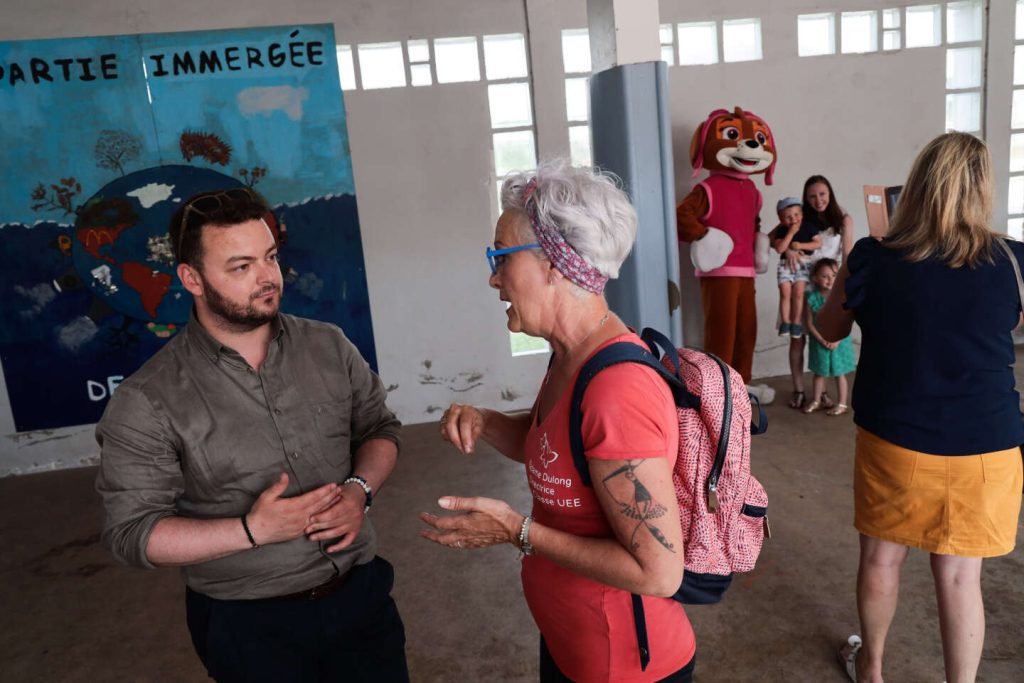The handshake is friendly as the President of the Vaucluse Medical Council, Bernard Arbomont, welcomes the National Rally (RN) Deputy Catherine Jaouen into the administrative headquarters of the organization. After a quick tour of the premises and greetings with the secretaries and employees, the doctor opens his office to have a forty-five-minute discussion with the Avignon lawyer, a former member of the Union for a Popular Movement who switched to the RN. They discuss topics such as the care of women victims of domestic violence, the effects of the numerus clausus, and the proposed end-of-life reform. As the meeting concludes, Dr. Arbomont thanks the deputy for the exchange, and she leaves pleased with the protocol visit.
In Avignon, like in the 88 constituencies where RN deputies have been participating in various ceremonies and events since June 2022, the members of this party are refining their strategy of “normalization.” The dissolution of the republican front against the far right is now coupled with a less spectacular but more profound movement: the gradual acceptance of the legislators from Marine Le Pen’s wave of the recent elections. The RN deputies are building a strong presence and rooting themselves in the communities, similar to past political movements such as the PS of Mitterrand or the RPR of Chirac, according to experienced officials and politicians who have observed their activities.
The potential for gaining power may lie in events like fairs, flea markets, agricultural shows, or Christmas markets. While Macron’s party has been portrayed as a party of upper-level executives and metropolitan areas, RN parliamentarians are actively engaging with local events and showcasing their presence on social media. They attend events like lotos, wine and gourmet shows, belote contests, and rural festivals to connect with voters and highlight their support for local communities and traditions.
The RN parliamentarians are leveraging Facebook to connect with voters who still show up at the polls, demonstrating their presence at various local events. They use social media to showcase their participation in convivial and warm gatherings, such as lotos, wine and gourmet shows, belote contests, and rural festivals. This approach allows them to reach out to a wider audience and establish a strong presence in local communities.
The shift towards a more grassroots approach to politics by the RN deputies is evident in their active participation in local events and engagement with voters on social media. By attending fairs, agricultural shows, and other community events, they are building a strong local presence and positioning themselves as advocates for traditional values and community cohesion. This strategy may prove effective in gaining support and expanding their influence in various constituencies across the country.















